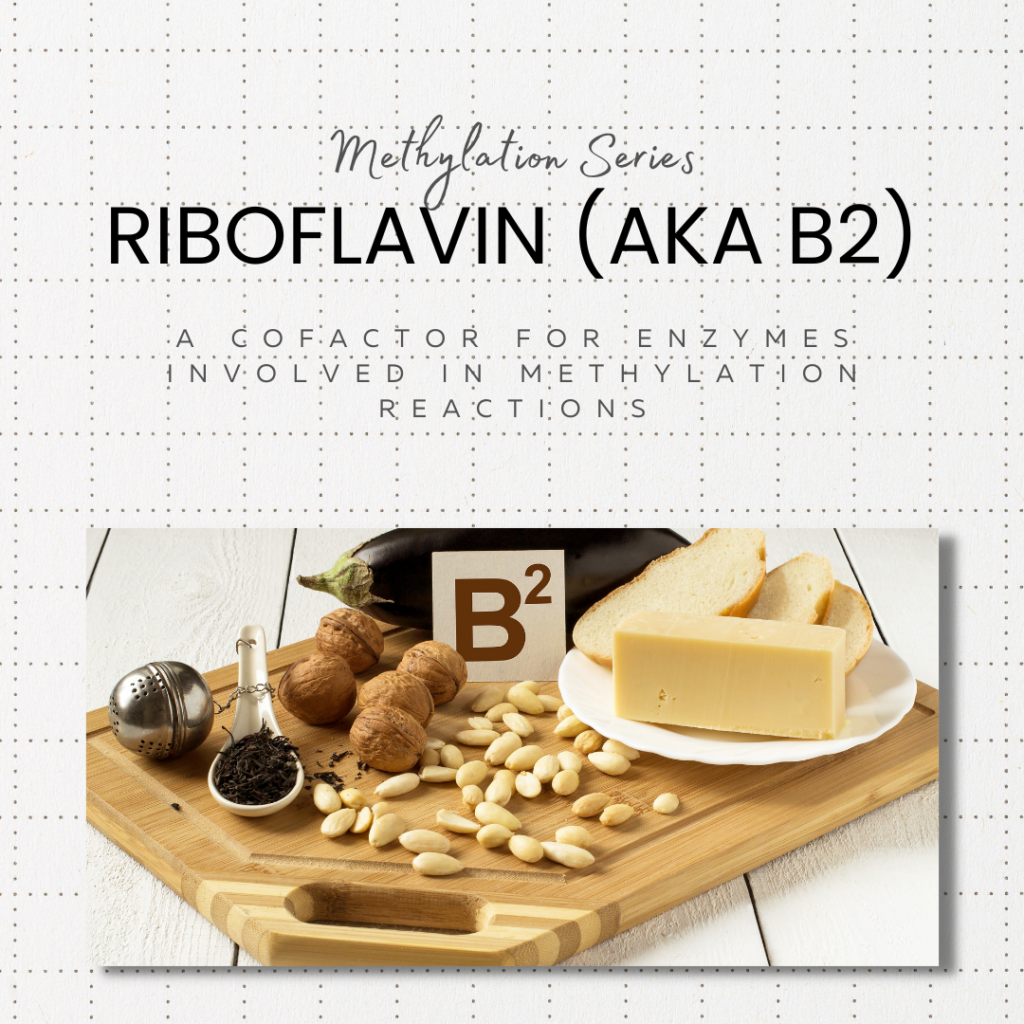Riboflavin, also known as Vitamin B2, plays a role in methylation biochemistry by acting as a cofactor for enzymes involved in methylation reactions.
Riboflavin is required for the activity of the enzyme flavin adenine dinucleotide (FAD)-dependent methylene tetrahydrofolate dehydrogenase (MTHFD2), which catalyzes the conversion of 5,10-methylene tetrahydrofolate to 5-formyl tetrahydrofolate. This is an important step in the methylation cycle because it generates formyl tetrahydrofolate, which is a precursor for the biosynthesis of purines, pyrimidines and methionine.
Additionally, riboflavin is also required for the activity of the enzyme flavin adenine dinucleotide (FAD)-dependent formaldehyde dehydrogenase (FALDH), which catalyzes the conversion of formaldehyde to formic acid. This enzyme is important for the detoxification of formaldehyde, which is a toxic compound that can inhibit methylation reactions.
Riboflavin deficiency has been shown to disrupt methylation reactions, leading to changes in the expression of genes that are involved in the misfiring of genetic expression.
References
- https://www.ncbi.nlm.nih.gov/pmc/articles/PMC7354546/
- https://www.ncbi.nlm.nih.gov/pmc/articles/PMC7163664/
- https://www.ncbi.nlm.nih.gov/pmc/articles/PMC6447777/
- https://www.ncbi.nlm.nih.gov/pmc/articles/PMC5579467/
- https://www.ncbi.nlm.nih.gov/pmc/articles/PMC7266847/


